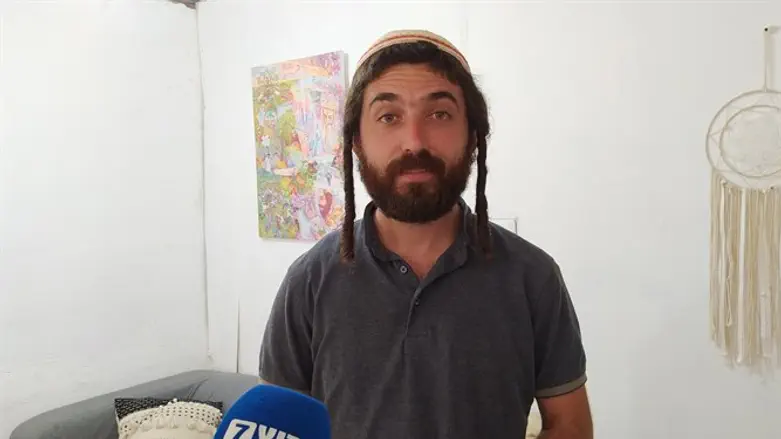
Tzvi Sukkot is famous – or rather, infamous. For several days already, a picture of him with his wife and children has featured on the Facebook page of the Arab village of Bayta, near the evacuated Samarian town of Evyatar, along with regards from Bayta’s residents, in recognition of his central role in the founding of the settlement.

“Wishing your wife was a widow and your children orphans,” reads one post on the Facebook page that has gone viral, with hundreds of “likes.” Bayta’s Facebook page has over 25,000 followers, and around 150 of them posted their own death wishes to the Sukkot family, along with curses and hopes for them to be struck down by fatal diseases and unnatural forms of death.
“This is extremely worrying,” Sukkot told Arutz Sheva, noting that, “there have already been dozens of such posts in recent months, wishing ill against my family.”
Sukkot added that, “I turned to the IDF and also submitted a complaint to the police, hoping that they would deal with it. When it came to the Pride March, by contrast, police arrested every single right-wing activist who made outspoken statements on Facebook, even though no one submitted complaints against them.”
Sukkot also attempted to persuade Facebook to address the issue themselves, reporting the violent language used in the posts. To his surprise, he received a swift response.
“The post you reported has been checked and was found not to breach our community standards,” Facebook told Sukkot. “Please inform us if you find anything else that disturbs you on Facebook.”
This wasn’t Sukkot’s first interaction with the company. Not long ago, Sukkot uploaded to his own Facebook page an account of the preparations being made by Bayta’s residents for violent riots against security forces and Evyatar’s residents. “The terrorists of Bayta are preparing for their massive weekly riot,” he wrote. “We should be taking the demolition order [against Evyatar] and applying it to this village of crazed murderers.”
The response? Facebook suspended Sukkot’s account for three days.
Arutz Sheva’s Hebrew-language news site posted the story on Sunday morning. Later in the day, Facebook apparently had a change of heart and took down the post Sukkot had complained about.
“My complaints didn’t help,” Sukkot wrote later on his own page. “Facebook stubbornly insisted that the post calling to murder me did not violate its community guidelines. Then Arutz Sheva’s Yehonatan Gottlieb took the trouble to send his article to Facebook’s spokesperson, which suddenly prompted them to decide that the offensive post did not conform with their guidelines after all. So they took it down. Thank you, Yehonatan! (The rest of the posts with all their incitement are still up, of course.)”
Responding to the incident, Israel Police said in a statement: “This morning, we received a report of suspected incitement to violence against an employee of the Samaria Regional Council. Following the report, police commenced an investigation into the information received.”
